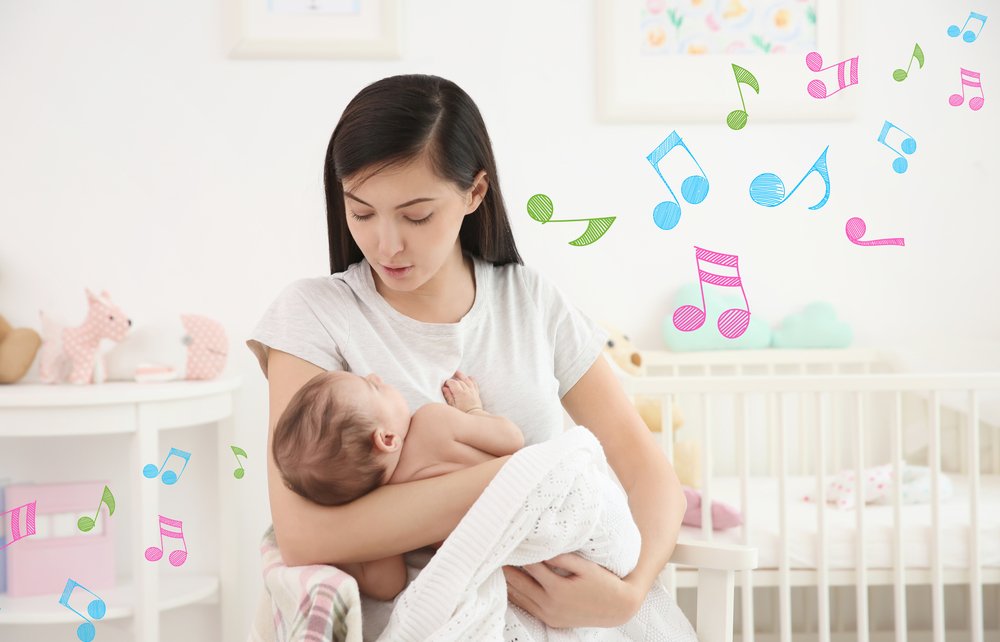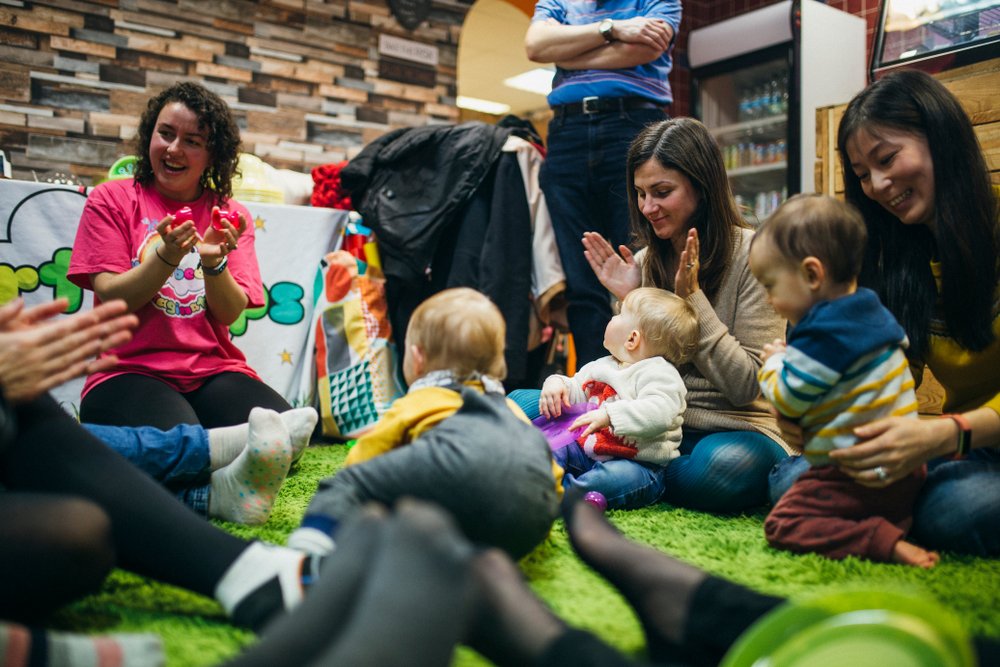Key points:
- Singing to your baby has developmental and emotional benefits, including strengthening your parental bond and teaching your child how to listen and respond.
- Babies can recognize songs played to them regularly in the womb and continue to develop their musical abilities through consistent exposure to singing.
- Singing helps with transition times and can help your baby acquire new vocabulary.
- Regardless of your singing abilities, singing to your baby can have a positive impact on their development and can stimulate other areas of growth as they age.
Your baby might not know the lyrics to Twinkle, Twinkle Little Star yet, but they definitely love that you’re singing it to them. Regardless of how you might feel about your musical talents, singing to your baby has a surprising number of developmental and emotional benefits. From helping with colic to building a strong parental bond, incorporating music into your daily routine can have a positive impact on you and your little one.
When you sing, you’re giving your baby what they want most in this world: your undivided attention. You’re creating an opportunity for meaningful interaction that teaches your child how to listen and respond. Clapping along, making eye contact, and singing your child’s name are all ways of strengthening your relationship and communication skills. In time, you’ll start to notice that your child pays more attention to you, searches for the sound of your voice, and begins to look directly at you. The more you can sing while driving or changing diapers, the more your baby will become attuned to your voice and the stronger your bond will be.

It’s never too early to start singing to your baby. By the third trimester, babies start to develop each of their five senses and process sound and music. In fact, a 2013 study found that babies who had a song played to them regularly in the womb could recognize the melody months after they were born. And an early auditory study –dubbed the “Fetal Soap Addiction”– found that babies whose mothers regularly watched a soap opera while pregnant would focus intently on the television when the theme song was played a few days after birth.
With consistent exposure, babies continue fine-tuning their “musical ear” as they grow. From a very young age, researchers report that children possess impressive musical abilities, including “the ability to discern and predict downbeats in rhythm, perceive pitch contours and remember the melody, and move spontaneously to music.” This is true for recorded music, but research shows that children benefit most when parents sing songs themselves. That’s because interaction and active involvement are key. Hold your baby’s hands, use a toy as a prop, or make funny faces…whatever works. As long as you focus on your baby, they will benefit.
Here are a few ways you and your baby benefit from singing:
- Your bond strengthens. Your baby will begin to recognize your voice and face.
- Singing is great for transition time. Sing a little song before bathing, going to bed, or waking up in the morning.
- Singing will help your baby acquire and understand new vocabulary.
- Children routinely exposed to music and singing can more readily develop rhythm and musical abilities.
- Most importantly, your baby will know that you love them!
Even if you don’t think you’re a great singer, no worries! Your baby doesn’t mind. As they age, you’ll start to notice how singing can be a valuable tool in stimulating other areas of development. Happy singing!
Myrna Garcia is a clinical psychologist with a specialization in Early and Preschool Education. She is trained in childhood learning difficulties and has worked with children of all ages. She has been a preschool teacher and has worked with kids in STEAM programs, as well as teaching a second language. Myrna is very interested in Early Childhood Development and will continue helping parents get informed and work with their kids.








